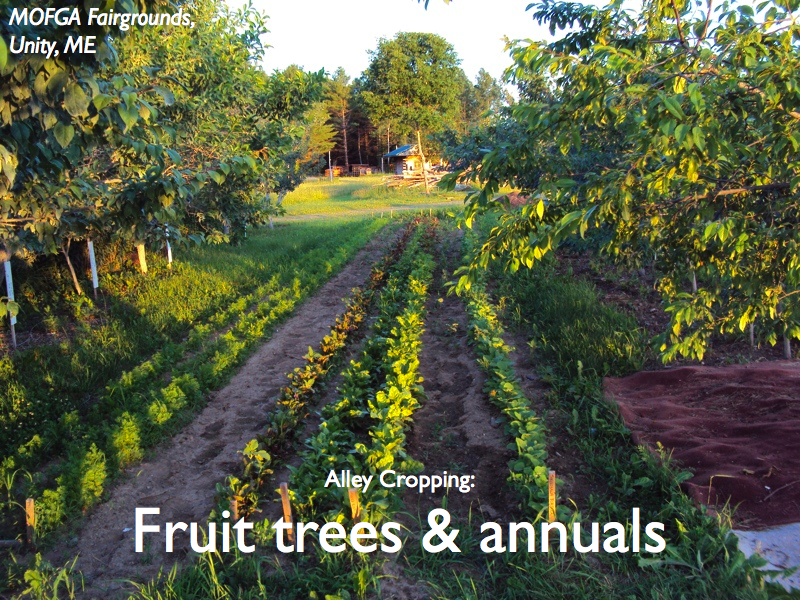Every time Benneth Phelps (Mosaic Farm) and I prepare to give this talk (this time at the 2010 Northeastern Organic Farm Association Summer Conference) we end up tearing it apart and redesigning it completely. Here’s a sample polyculture from the talk:

This time, Benneth drew on her recent experience creating a complete business plan for her venture Mosaic Farm in the Connecticut River Valley of western Massachussets. We articulated a new design permaculture process for farmers, who need to focus on specific marketable crops along with the larger landscape patterns necessary to support and maintain them.
For a summary of our new design process, ,
Here is the process, with guiding principles in green:
Crop Design Process

At AppleSeed Permaculture, our larger goal is to support our local and regional farmers towards economic prosperity and ecological sustainability. To this end, we’re going to begin offering low-cost consulting to full time farmers in our Rondout Valley bioregion – read more at www.appleseedpermaculture.com/services/permacultureforfarmers and contact us to learn more.
Below is the slideshow that Benneth and I presented this weekend. To download the handout from our talk, scroll down the blog until you get to “Permaculture for Farmers & Ecosystem Investing” and click on the image.
If you’re looking for the mother-load of Enterprise Budgets we mentioned, you’ll find the link in this blog post on Holistic Management and Financial Planning.
Are you growing any of these crops? Do you think the polycultures we presented will work on your farm? Do you have another idea we should consider? Let us know in the comments!


Pingback: Tweets that mention Permaculture for Farmers: Crops, Patterns, Polycultures | AppleSeed Permaculture -- Topsy.com
How do you slice the pie on slide 4?
One idea you might consider adding to it: Gobar gas.
Hopefully your ideas will bring more farmers into permaculture.
The most important question for the Permaculture Pie: Which slice is the most important? (hint: it’s a trick question)
Tell me more about Gobar gas…?
Ethan